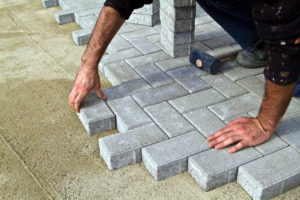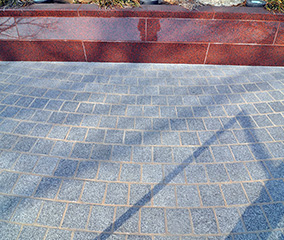
Bricks or concrete blocks for your commercial property?
If you are currently in the planning stages of building a commercial building, you may be wondering what materials will be ideal for protecting your property from the elements and will last for many years. Brick and concrete are both great choices that are insect-proof, fire-resistant, and have a significant amount of thermal mass. These are excellent options for retaining heat during the wintertime. Here are some characteristics of both materials when determining between bricks or concrete blocks for your commercial property.
Cost Affordability
First, you must consider the cost when choosing between bricks or concrete blocks for your commercial property. Even though the expenses linked to both are comparable, they are different, which can ultimately impact the final cost. Brick is frequently sold by the thousand, while the box sells concrete masonry.
Furthermore, bricks are often available in smaller sizes than concrete blocks. This means that more bricks are necessary to construct a wall or structure the same size as one built with concrete. In addition, concrete blocks are more affordable per unit than brick. Lastly, brickwork needs more masonry skills than concrete masonry. If the price is a significant concern for you, concrete blocks are typically more affordable when constructing larger buildings.
Strength Level
Both materials are rigid when selecting bricks or concrete blocks for your commercial property. The average block can handle 3,500 pounds per square inch (psi), while a clay brick can withstand 3,000 psi. However, the mortar’s psi used in construction can also create a significant difference.
For example, mortar with concrete can go up to 2,500 psi, while weaker lime mortars can only withstand about 350 psi. Overall, the combination of both materials determines the final strength value of your masonry construction, but they are both quite tough.
Durability
Although both materials will protect your commercial property from extreme weather and keep you and the people within the building warm during winter, they have downsides. Clay brick is very porous, giving access to water to enter and freeze during dropping temperatures. This will damage the brick until it gradually degrades.
While concrete blocks are susceptible to the same types of damage, they are more resistant to water than clay bricks. That said, clay brick structures can still last a long time with constant care.
Insulation
Finally, clay bricks have more thermal mass than concrete blocks because they absorb heat during the day and release it overnight. On the other hand, concrete doesn’t insulate as well as brick, so its denser nature makes it soundproof.
So, bricks are the best choice if you value insulating your commercial property and maintaining a constant temperature indoors. In contrast, concrete is better for constructing anything where soundproofing is a top consideration.
CONTACT DEL PRETE MASONRY TODAY!
Whether you are ready to start your next masonry project or are still hesitant and have questions, Del Prete Masonry is here to help. We have the experience and expertise to get it right the first time. Questions? Want to visit some of our residential or commercial projects? Ready to set up a consultation? Feel free to give us a call at 410-683-0650 or visit us online. We are happy to serve Baltimore City and County, Harford County, Carroll County, Anne Arundel County, and Howard County. To see examples of our work and to keep up with our new and exciting projects, be sure to follow us on Facebook, Twitter, and Pinterest





























